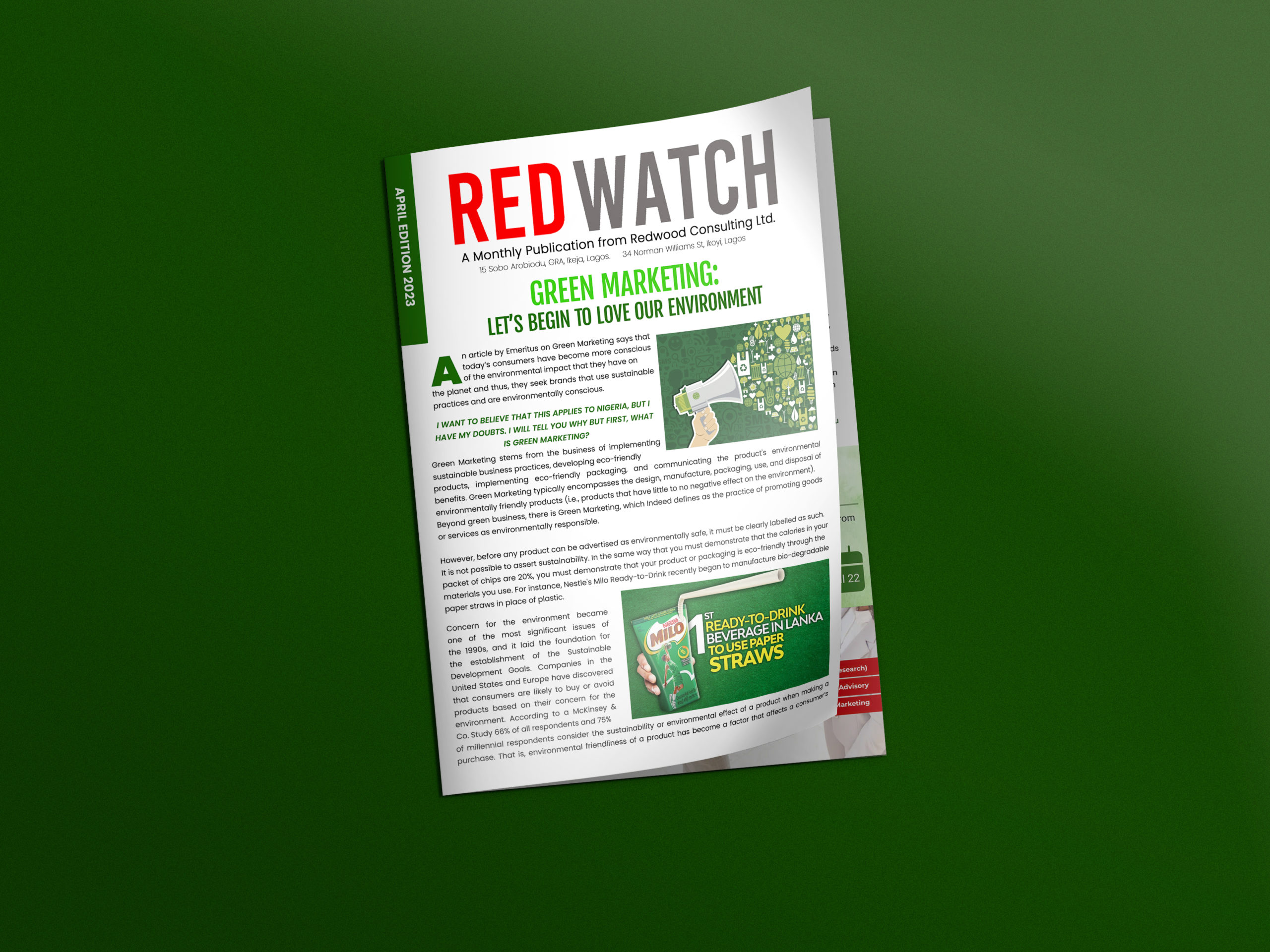
GREEN MARKETING: Let’s begin to love our environment 🌳
An article by Emeritus on Green Marketing says that today’s consumers have become more conscious of the environmental impact that they have on the planet and thus, they seek brands that use sustainable practices and are environmentally conscious.
I want to believe that this applies to Nigeria, but I have my doubts. I will tell you why but first, what is Green Marketing?
Green Marketing stems from the business of implementing sustainable business practices, developing eco-friendly products, implementing eco-friendly packaging, and communicating the product’s environmental benefits.
Green Marketing typically encompasses the design, manufacture, packaging, use, and disposal of environmentally friendly products (i.e., products that have little to no negative effect on the environment).
Beyond green business, there is Green Marketing, which Indeed defines as the practice of promoting goods or services as environmentally responsible.
However, before any product can be advertised as environmentally safe, it must be clearly labelled as such. It is not possible to assert sustainability. In the same way that you must demonstrate that the calories in your packet of chips are 20%, you must demonstrate that your product or packaging is eco-friendly through the materials you use. For instance, Nestle’s Milo Ready-to-Drink recently began to manufacture bio-degradable paper straws in place of plastic.
Concern for the environment became one of the most significant issues of the 1990s, and it laid the foundation for the establishment of the Sustainable Development Goals. Companies in the United States and Europe have discovered that consumers are likely to buy or avoid products based on their concern for the environment. According to a McKinsey & Co. Study, 66% of all respondents and 75% of millennial respondents consider the sustainability or environmental effect of a product when making a purchase. That is, environmental friendliness of a product has become a factor that affects a consumer’s purchase decision.
Companies of all sizes have adopted this practice, and it has proven lucrative in terms of revenue, brand popularity, and customer loyalty. In an article by Manufacturing, the following companies use recycled materials to manufacture their products – and they’re thriving!
- WeWood, an Italian company, used reclaimed and recycled wood and other materials to manufacture watches.
- Green Toys use recycled milk jugs to manufacture bright toys for imaginative boys and girls.
- Nike’s Flyknit reduces material waste in shoe manufacturing cut and sew procedures by 60%, and each pair of Flyknit is made from six recycled plastic bottles.
- Adidas produced 15 million pairs of shoes made from beach plastic waste, and by 2024, the business will limit its garment production to recycled polyester.
- Dell collected 4.5 million kilos of recycled plastic to manufacture its monitors and desktops.
They’re thriving because they are in an environment that recognizes the importance of sustainability. Advertisers in Nigeria practice eco-friendliness on paper. It is much simpler to slap on a “reduce, reuse, recycle” label on your product packaging, isn’t it?
But this is the world we’ll live in until whatever we believe in unfolds. Our nation is frequently plagued by floods which often results to environmental challenges from plastic pollution.
This is the Nigeria we will live in until the Second Coming; so yes, this is a call to all Nigerians, not just Nigerian advertisers, and their principles. We actively promote a better future when we support businesses with sustainable practices.
Besides, with all the political and economic brouhaha going on, wouldn’t it be great to have one thing you can control?


Leave a Reply